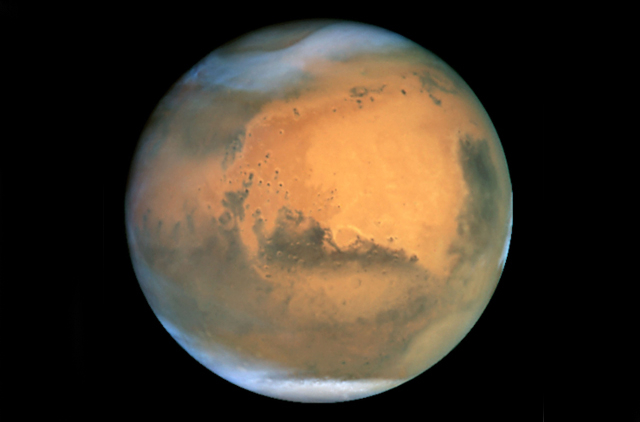Press conference starts at 11pm UAE time
Tonight, National Aeronautics and Space Administration (NASA) will announce major news and details of a key scientific finding from the ongoing exploration of Mars.
The press conference will begin at 11pm UAE time on Thursday, November 5 at NASA’s Headquarters in Washington.
We will be streaming the event live through NASA TV so you can watch what may prove to be an historic announcement right here.
In September, NASA announced that there was strong evidence to suggest that salt water exists on Mars' surface. It is the strongest evidence yet to suggest that there may be, or may have been, life on Mars.
Any suggestion that there is life on Mars would be one of history's biggest moments, and despite many people hoping that some form of life has been discovered, the major announcemnet is more likely to relate to Mars' atmosphere.
Mars was once wet and warm, and scientists may have discovered what happened to the atmosphere | Image: WikiCommons
The MAVEN space probe entered Mars' orbit last September and has been investigating the Red Planet's atmosphere and how it was lost. In 2003, trace amounts of methane were discovered, and ever since scientists have been trying to find its source. Methane is given off by living organisms.
However, it is believed that tonight's announcement will shed some light on how Mars went from being a wet and warm planet to the dry, inhospitalbe one it is now.
NASA has confirmed the conference panellists on their website. It includes Michael Meyer, lead scientist for the Mars Exploration Program at NASA Headquarters, Bruce Jakosky, Mars Atmosphere and Volatile Evolution (MAVEN) principal investigator at the Laboratory for Atmospheric and Space Physics (LASP) at the University of Colorado, Jasper Halekas, MAVEN Solar Wind Ion Analyzer instrument lead at the University of Iowa, Yaxue Dong, MAVEN science team member at LASP, and Dave Brain, MAVEN co-investigator at LASP.
You can ask the panel questions and join the discussion on Twitter with the hashtag #AskNASA.













